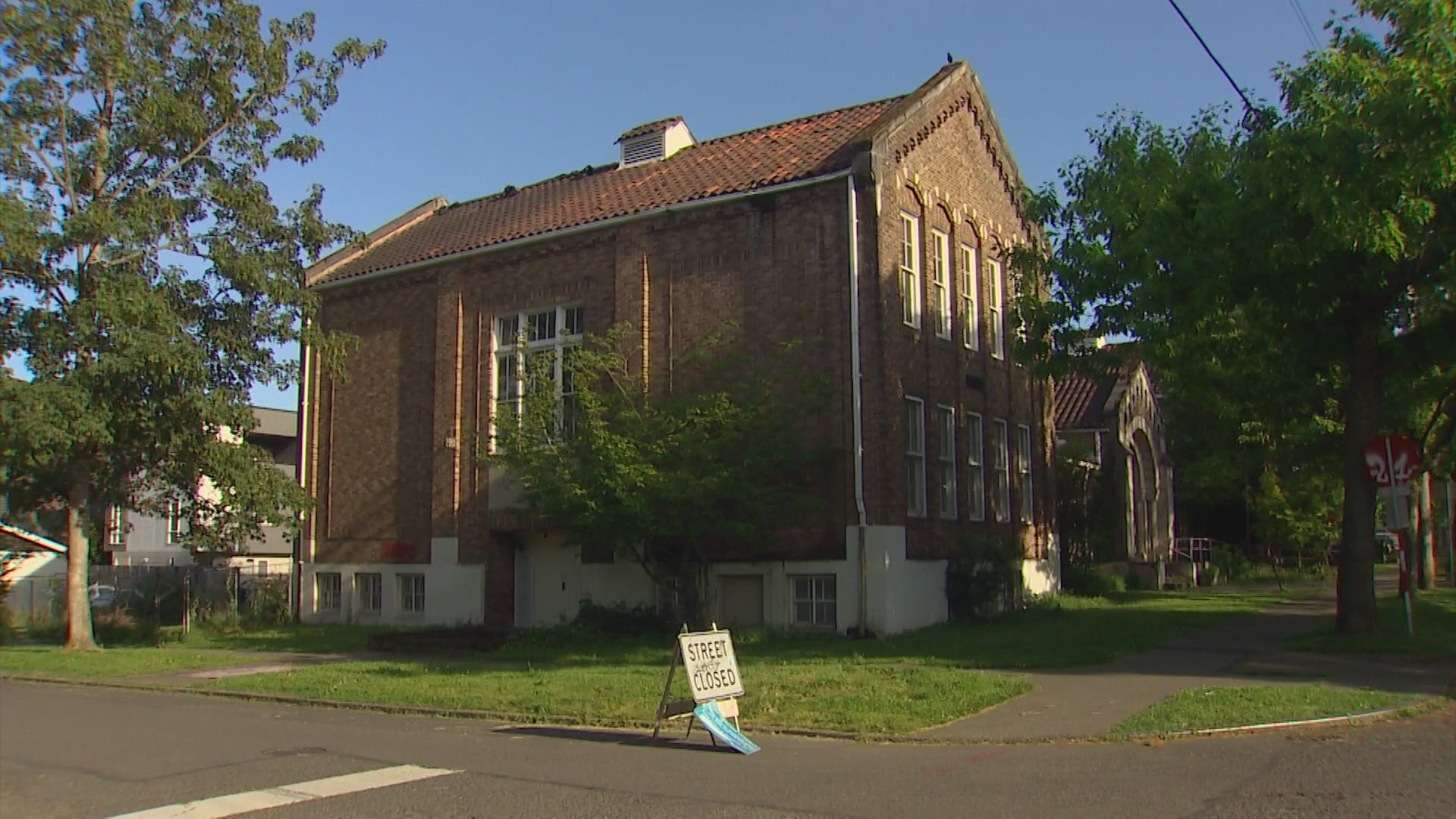SEATTLE — In Seattle's Cherry Hill neighborhood, Muslim and Jewish groups are coming together to save a building that has history with both faiths.
The nearly 100-year-old building opened in 1929 as Seattle's first Jewish School called Talmud Torah. In the 1980s, the building was sold and soon became the Islamic School of Seattle. The school closed its doors in 2012, and the building has been mostly vacant since that time.
The group Cherry Street Village, a collective interfaith community, has a vision for the space. The group wants to build an interfaith community space to offer arts, events and rental space in the historical building.
"Enter as a guest and leave as a friend," said Cherry Street Village Project Manager Koloud "Kay" Tarapolsi.
Tarapolsi said once the building is open, it will house art and Jewish and Islamic educational classes.
Once a school, the building's center is a gymnasium with a stage. Tarapolsi wants to see the space used for theater and rented out for special events like Bar Mitzvahs and Eid gatherings.
"Showing the cultures through food, through music, through theater," Tarapolsi said.
As people in the United States follow the crisis happening between Israel and Palestine, Tarapolsi hopes an interfaith community can be a bridge to conversation.
"We're hoping that once we get this space up and moving, that when you have conflicts arise people are already talking," Tarapolsi said. "They're already using this space to enjoy a play and then after they're here to mingle and have a conversation."
Before this vision becomes a reality, the nearly century-old building is in need of repairs. The Cherry Street Village is raising $80,000 to repair the building's roof. Tarapolsi said they will also fundraise around $150,000 to repair the inside of the building. They're hoping to collect the funding through grants and donations.
"It has these beautiful ceramic tiles that have not really withstood the test of time and the ages of the rain," Tarapolsi said. "And the little critters that have made little homes in it that shouldn't be in roofs."
The goal is to raise enough funds to replace the clay roof tiles and keep the building's original appearance.
"We want to honor that feeling of what the place looked like [in 1929]," Tarapolsi said.
Cherry Street Mosque, Dunya Production, Kadima Reconstructionist Community, Salaam Cultural Museum and Middle East Peace Camp are some of the organizations behind the Cherry Street Village.
"We're here to show that these organizations that have come together...to show that this is what we're really about," Tarapolsi said.

